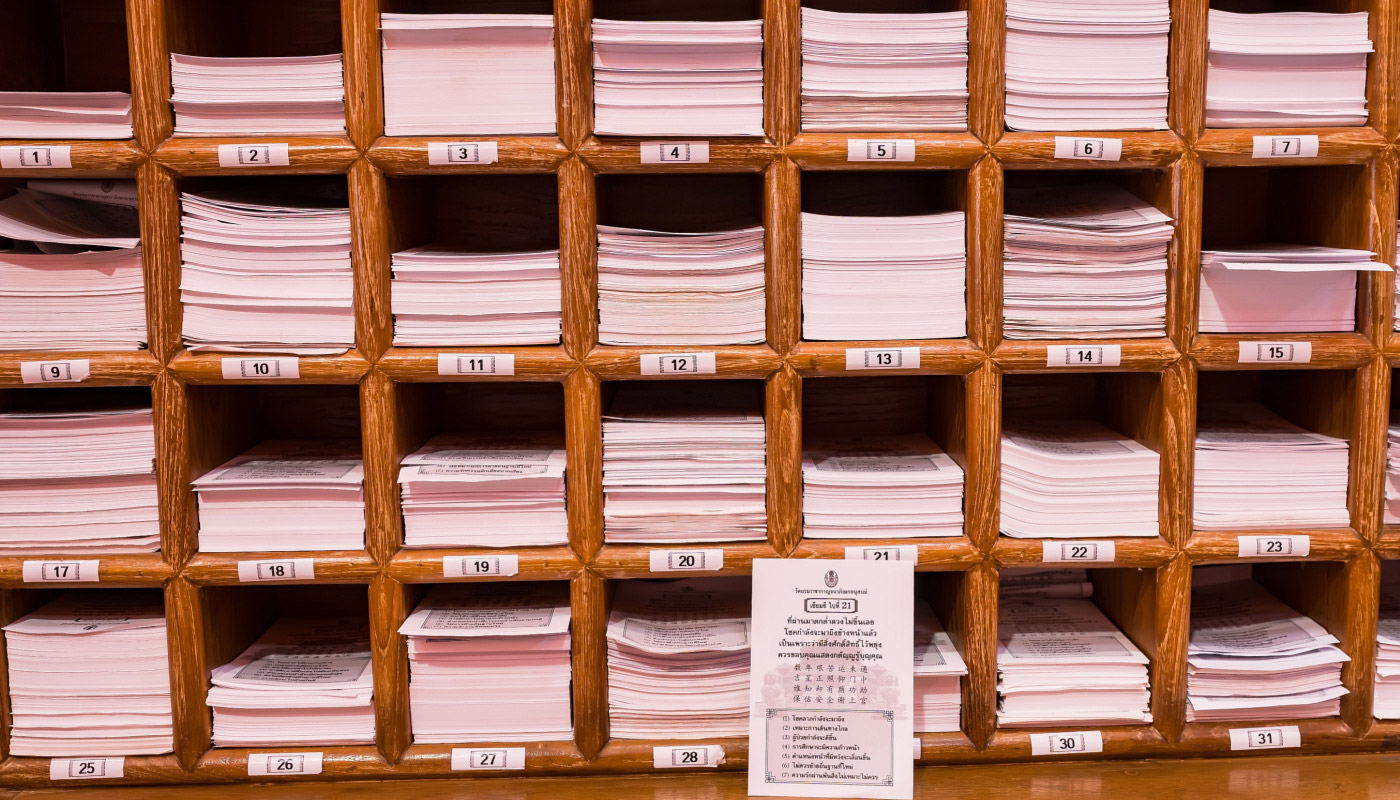
News writer
You might be surprised to learn that lotteries have a long history that stretches back over many centuries. Playing the lottery has been an integral part of life in many cultures throughout the ages.
History shows us that lotteries have been used to benefit emperors, philosophers, politicians, and, of course, lottery winners. But where does the lottery originate from, and how much has it evolved over time?
The birthplace of the lottery
The earliest known records of a lottery date back to ancient China, around 200 BC. That was around 2223 years ago. The game was introduced during the time of the Han Dynasty. Its purpose was to fund a large military project intended to protect China from would-be invaders. The project was the construction of the Great Wall of China.
According to legend, the game used the first 120 characters from an ancient calligraphy text known as the “Thousand Character Classic.” Players would pick a group of characters, just as modern players choose random numbers. Famous general Cheung Leung then picked random characters to create the winning combination. It became known as the White Pigeon Game because the winning combinations were delivered throughout China via carrier pigeon. Silver plates were offered as lottery prizes. The game was a huge success and was played throughout the realm. It raised enough money to help build the Great Wall. Today, a similar game is known as Keno.
Lottery games in Ancient Rome
Roman Emperor Augustus Caesar (63 BC to AD 14) was the first to introduce lotteries in Roman times. Rome was in a general state of disrepair. But because Caesar was already taxing his citizens heavily, he had to come up with another plan to increase revenue without causing unrest. He decided the best way to do so was to introduce a lottery with prizes that would include treasures from recent conquests. His plan succeeded.
Around 200 years later, Roman Emperor Elagabalus introduced his own type of lottery. Initially, the boy emperor earned the respect and loyalty of his citizens by offering them land and slaves as lottery prizes. Gradually, the games took a rather more bizarre turn when the tickets were distributed by catapult. The prizes? They included dead animals, wasps, and sometimes death sentences.
Lotteries in medieval times
Lotteries were still popular during the Middle Ages. In Europe, lotteries with monetary prizes first went on sale during the 15th century. The revenue was considered a form of taxation and, in small towns, was used to help the poor. During these lotteries, it was common practice for people to bet on the names of members of the Council. For those citizens wanting to make a bet more than twice a year, the names were substituted with numbers. There, the first number-based lottery system was born. The English government established its first public lottery in 1659, with Queen Elizabeth I drawing the winning numbers.
More modern European lotteries
By the turn of the 18th century, lottery games had expanded throughout continental Europe. As their popularity grew, more and more technological innovations were introduced. One such innovation was the introduction of a drawing machine known as the tambourelle machine. Designed and implemented in France, the device was comprised of a horizontal rotating drum. The inner cylinder was lined with numbered compartments, each of which held a paper lottery ticket. The devices streamlined the process of selecting winners and drawings, improving security for drawings and making them more efficient and more difficult to manipulate.
Early North American lotteries
Lotteries were very common in North America during the 18th century. Both George Washington and Benjamin Franklin ran games during the 1700s. However, by the end of the 19th century, growing moral opposition saw almost all state lotteries abolished. One that managed to survive was the Louisiana State Lottery. Chartered by a privately owned company, this lottery had been running since the end of the Civil War. Although New Orleans was its base, most of its revenue came from mail-order tickets that were sold throughout the country. However, it became renowned for its underhanded business practices, which involved bribes to judges and politicians in return for preferential treatment. This all came to an end in 1890 when Congress prohibited the sale of lottery tickets across state lines. The Louisiana State Lottery Company continued to operate for a short while in Honduras before its final demise at the beginning of the 20th century.
The advent of North American printed ticket lotteries
Thanks to the availability of mass printing technology in the 19th century, state lotteries were able to produce tickets on a large scale. At the time, they were typically sold at local retail outlets and newsstands. Free from the fallout of the earlier years of corruption, State lotteries again became a source of revenue for the government to fund infrastructure improvements like hospitals, bridges, and roads. As printing technology advanced, tickets became more sophisticated with design elements that added to security and reduced the risk of counterfeiting. To further add to security, elements such as signatures and seals were added to the drawing machines to prevent manipulation. To ensure transparency, State Lottery organizations always made sure that independent witnesses were present at every drawing.
The age of the digital lottery
The dawn of the digital age shone light on a new era for state lotteries. Since the late 20th century, they have made a gradual transition to an online environment, allowing players to participate at any time, wherever they are. As well as convenience, there are several other benefits to online lotteries, including:
- A greater variety of games
- Access to international drawings
- Win alerts
- A secure payment environment
- No lost tickets
In addition to enabling players to participate in traditional physical lotteries, the internet has also made the creation of new systems and games that take place completely online possible. In these cases, the winning numbers are randomly generated by complex, encrypted algorithms that ensure the security and fairness of the results.
New innovations and future trends
State lotteries are continuing to move forward, pushed by technological developments. One of the latest and most popular trends is the use of mobile applications. These allow players to participate in all forms of online games, including online scratch-offs, using their smartphones. The apps make it really easy to purchase tickets, check results, and receive payouts under a certain amount. More recently, mobile apps have adapted to specific player preferences, such as managing personal accounts directly and logging favorite games.
As we can see, the evolution of lotteries over the centuries, particularly with the development of digital technologies, has enabled the games to become more convenient, interactive, and fun for players. As popularity has grown, so have the jackpots, and lottery revenue is still used throughout the U.S. to finance social projects, so everyone's a winner.
Fun facts and trivia about lottery history
Here are some amusing anecdotes about lottery happenings throughout history:
- 16th century: To ensure fairness, in France, lottery drawings were conducted by a blindfolded child who picked winning tickets from a hopper attached to a spinning wheel.
- 1729: Philosopher Voltaire became hugely wealthy by teaming up with mathematician Charles Marie de La Condamine and a group of friends to exploit a lacerative flaw in the French National Lottery.
- 1787: George Washington introduced a lottery to raise money for the creation of a road through the Allegheny Mountains in Virginia. Though the project failed, the tickets, bearing his signature, are now collectors’ items. In 2006, one of the remaining 25 tickets was sold for $13,500.
- 1882: The Spanish Christmas lottery “El Gordo” was introduced. Orphan boys drew the first winning tickets from gold pots.
Who knows how the lottery will continue to evolve? Will the use of AI and algorithms make lotteries easier to win? Will prizes become even bigger? We'll just have to wait and see.



















Comments